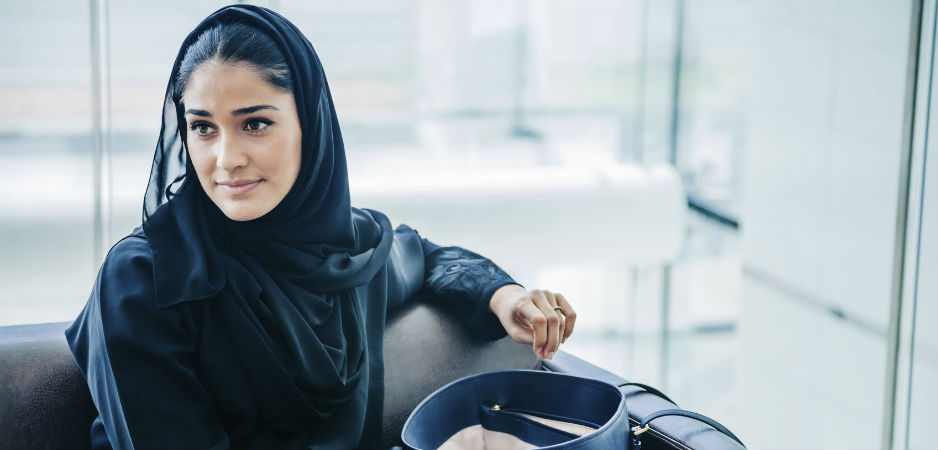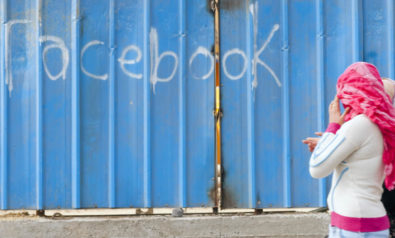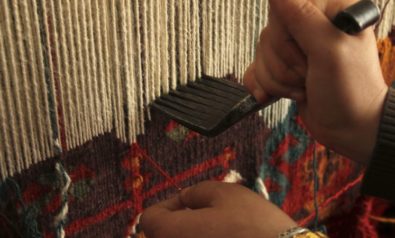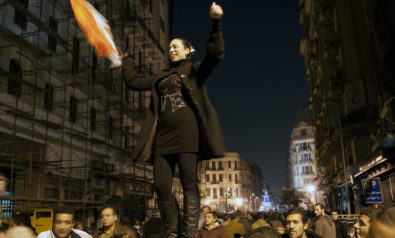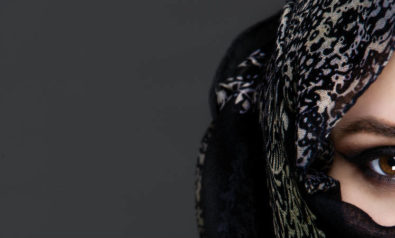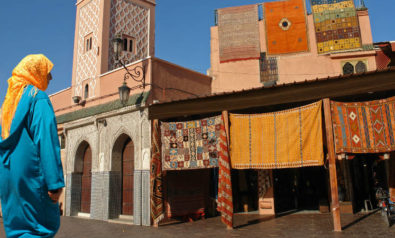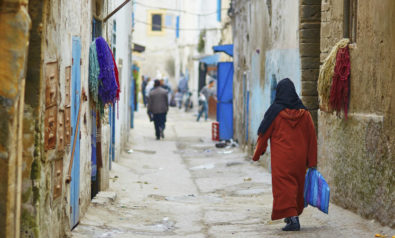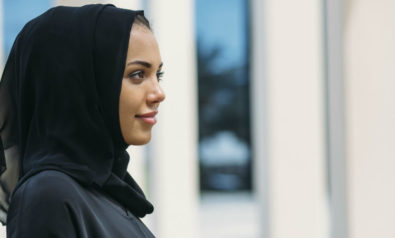Investing in women creates the sustainable change that the Middle East and North Africa urgently need.
BACKGROUND
When visiting a home in the Middle East or North Africa (MENA), it is the women who always appear to welcome the guest with a streaming cup of tea or coffee. While outsiders might view them as mystical Oriental creatures garbed in veils, the traditional hospitality and warmth of the region is clearly held in the hands of its living, vital women.
It is women who doggedly attend university classes in higher numbers than men. It is women who line up at the school entrances to register their wiggling children for classes. It is also women who are disproportionately affected by conflict and instability, whether during protracted civil wars or in the aftermath of the Arab Uprisings. It is the same women who must rebuild their societies when men are absent or injured.
According to the World Bank, 48.3% of the population in the MENA region is female. Battle lines have been drawn for many years over the oft-described subjugation of women. Arguments rage about whether it is a religiously motivated, culturally entrenched or imperial legacy that emasculates men, or a consequence of desperate poverty. The causes for the inequality between women and men are many. Yet it is important to recognize and nurture the multidimensional role women play in the region.
Despite increasingly vocal women in places such as Saudi Arabia and Egypt, debates over gender-specific issues such as genital mutilation, child marriage and violent abuse often assume Middle Eastern women to be helpless victims. The truth is that women in MENA often battle the odds, ask the hardest questions and are the biggest drivers of change in their societies.
WHY DO WOMEN IN MENA MATTER?
Women matter in any society and not just in MENA. People in societies where women are more educated live longer. Societies with more women leaders tend to be more peaceful. Societies where women have similar opportunities to work as men tend to be more productive and prosperous. In brief, women play one of the most important roles in development whether in social, political or economic terms.
Anecdotally, motherhood is the easiest role to see women perform successfully as advocates for their children. It is often women who obstinately stand in doorways insisting that aid be delivered to their families. Statistically, the effect of female literacy is indisputably linked to a decrease in both infant mortality and childhood illness by several studies.
This becomes even more important in projections of population growth in the Middle East and North Africa, with a fertility rate holding steady at 3.3 children per female and increased life expectancy. Educating mothers in the MENA region will lead to fewer children suffering from preventable diseases and more children attending school. The potential social and economic ramifications are not easily ignored.
Mothers often bear the brunt of emotional labor, managing households and finances while crippled by a lack of education. When a male provider dies or is unable to work, women are forced to scramble to provide for their families and manage with meager resources. This hardship is exacerbated in conflict zones, where women fear for their physical safety and the wellbeing of their children.
This is perhaps why women are notably invested in peace. Tellingly, participation by local women in the peacebuilding process has a “positive and significant impact on peace.” Women’s inclusion in peacebuilding boosts the probability of ending violence by a notable 24% annually. Studies in Liberia, Rwanda, Nepal and El Salvador demonstrate that women serve as effective mediators, agents of reconciliation and implementers of disarmament. In Colombia, women negotiate informal agreements with armed forces to protect their communities. The United Nations (UN) recognized this in 2000, passing UN Security Council Resolution 1325 to incorporate gendered perspectives into peacekeeping.
Although the rate of women’s participation in peacekeeping is still notably low and still in need of organic work, it was women who drafted Cambodia’s first piece of anti-corruption legislature, underlining the fact that female leaders promote more honest governments.
A 2013 study found that in ethnically diverse countries, a more “participative, collaborative” form of leadership practiced by female heads of state led to better economic performance. As per this study, the more diverse the nation, the more likely it is that a female leader could increase the gross domestic product (GDP) by at least 6% per year.
This also lends credence to the idea that women have a more nuanced approach to leadership. They are also more likely to be inclusive of marginalized voices and evince a greater interest in dispensing justice. Yet women occupy less than 10% of parliamentary seats in 38 states.
Women can fulfill the role of leader but, on a practical level, they are also important contributors to the workforce. Therefore, the World Bank, among others, repeatedly “stresses the importance of inclusiveness and accountability.”
Women in the MENA region, however, are underrepresented in the workforce with only 25% of eligible females employed. Women’s participation in the workforce has increased annually by a lackluster rate of 0.17% for the last 30 years. Ironically, World Bank data reveals that many Arab countries have made giant strides in reducing the gender gap in education. In fact, women are often better educated than their male counterparts, as female students outperform boys particularly on the tertiary level. In Qatar, for example, women outnumber men in universities by 2:1, and yet men are still more likely to be ahead in the workplace. Clearly, it is the gap in employment that now needs to shrink.
In The Arab Spring Five Years Later: Toward Great Inclusiveness, Hafez Ghanem, vice president of the World Bank for the MENA region, argues that women in the region are now demanding a more inclusive role in society, both economically and socially. Yet women along with youth and family farmers remain one of the three most excluded groups in society. Ghanem points out that various obstacles, including “unsafe” private work environments, lack of childcare, marriage, legal or informal discrimination, and guardianship systems continue to limit women’s participation in the workforce.
This status quo is untenable. For the new generation of women in the MENA region, education and work are increasingly a priority. They demand an inclusive role in society, economic growth and access to employment opportunities. Over 40% of women in Lebanon and Morocco disagree with employers preferring to hire men over women. In eight sampled countries across the MENA region, “more than 40% of women strongly disagree with the notion that university education is more important for a boy than a girl.”
Ghanem posits that the demographic shift toward the youth population has brought young women to the forefront. This new generation of women aged 15-29 are more educated, have better health outcomes and lower fertility rates than their predecessors. Still, the labor force participation rate for young Arab women remains particularly low compared to the rest of the world. In 2003, it was 27% compared to 64% in the Americas, 55% in Europe and 62% in sub-Saharan Africa
There is a need to close the gap in employment both in the formal and informal sectors, creating more opportunities for more educated young women.
Women, like men, are multifaceted and can perform multifaceted roles in society. Yet part of the reason they suffer discrimination and experience a gender gap is because of structural and cultural roles defined by tradition in society. Even in the US, masculinity is a constant source of distress and discussion. In the context of MENA, a conversation around gender roles and expectations is necessary for women to perform to their full potential.
Although women will seize every opportunity given to them, in ignoring the varied roles they can play, the international community loses the clearest agents of sustainable change. The demonstrated resilience of women is the key to stabilizing and nurturing healthy societies.
This 360° comprises a series of articles that highlight the rich, intricate and varied roles women play in the MENA region. They also examine how women can increase civic participation, redefine the social contract and transform their region.
The views expressed in this article are the author’s own and do not necessarily reflect Fair Observer’s editorial policy.
Photo Credit: Sami Sert
For more than 10 years, Fair Observer has been free, fair and independent. No billionaire owns us, no advertisers control us. We are a reader-supported nonprofit. Unlike many other publications, we keep our content free for readers regardless of where they live or whether they can afford to pay. We have no paywalls and no ads.
In the post-truth era of fake news, echo chambers and filter bubbles, we publish a plurality of perspectives from around the world. Anyone can publish with us, but everyone goes through a rigorous editorial process. So, you get fact-checked, well-reasoned content instead of noise.
We publish 2,500+ voices from 90+ countries. We also conduct education and training programs on subjects ranging from digital media and journalism to writing and critical thinking. This doesn’t come cheap. Servers, editors, trainers and web developers cost money.
Please consider supporting us on a regular basis as a recurring donor or a sustaining member.
Support Fair Observer
We rely on your support for our independence, diversity and quality.
Will you support FO’s journalism?
We rely on your support for our independence, diversity and quality.

